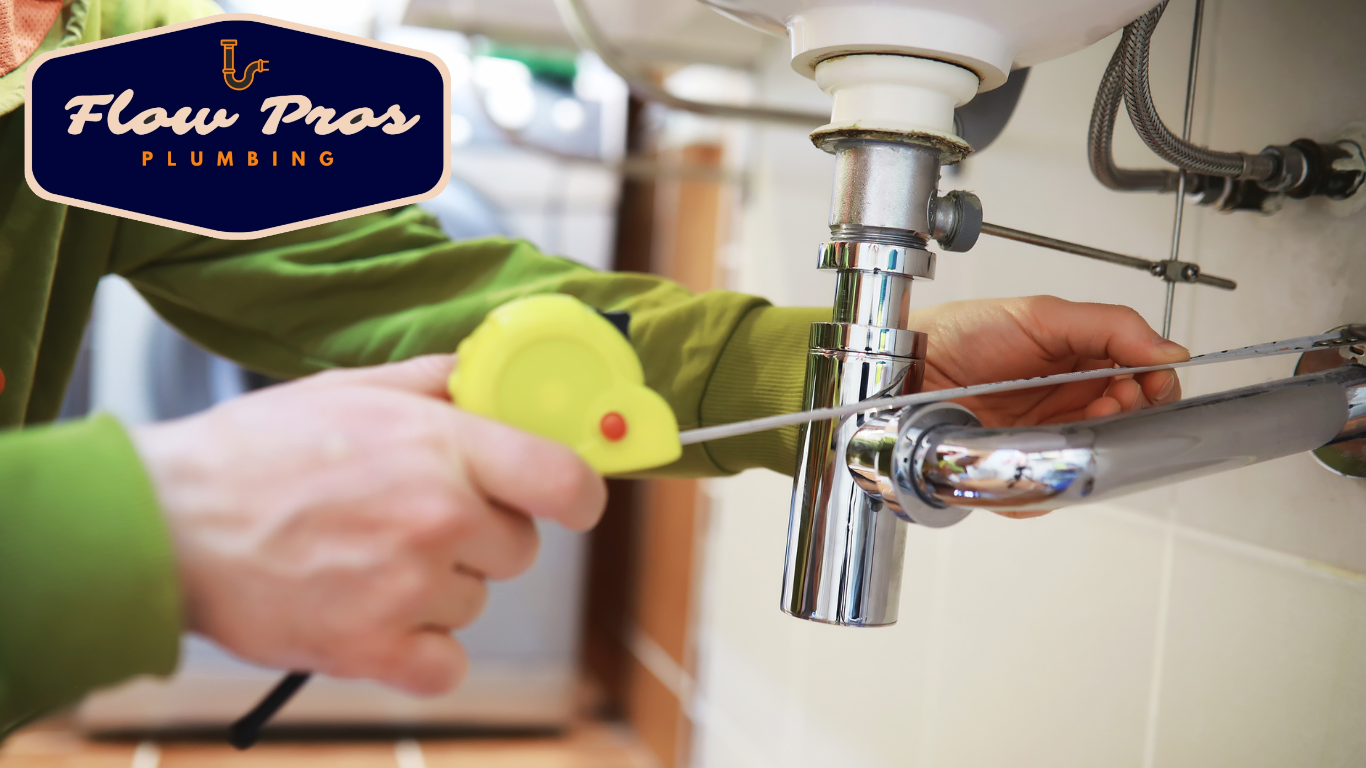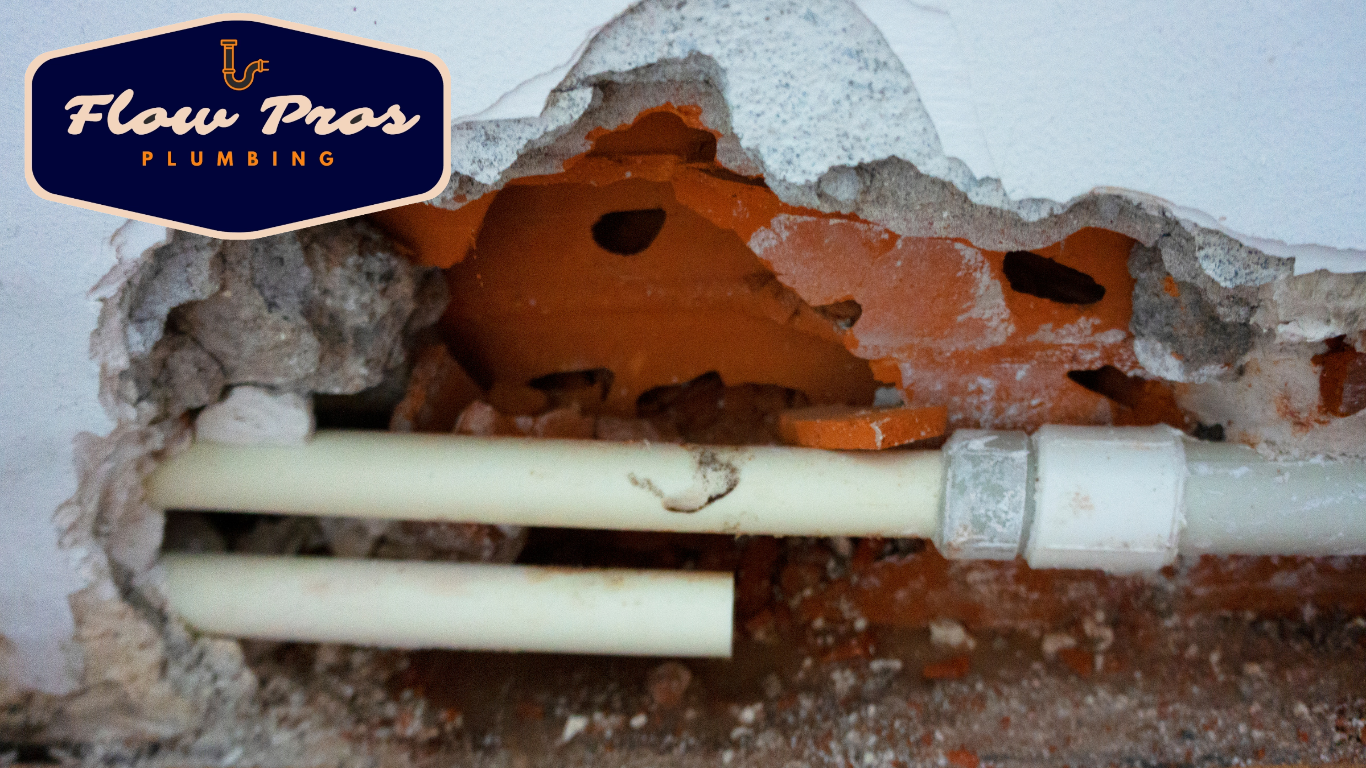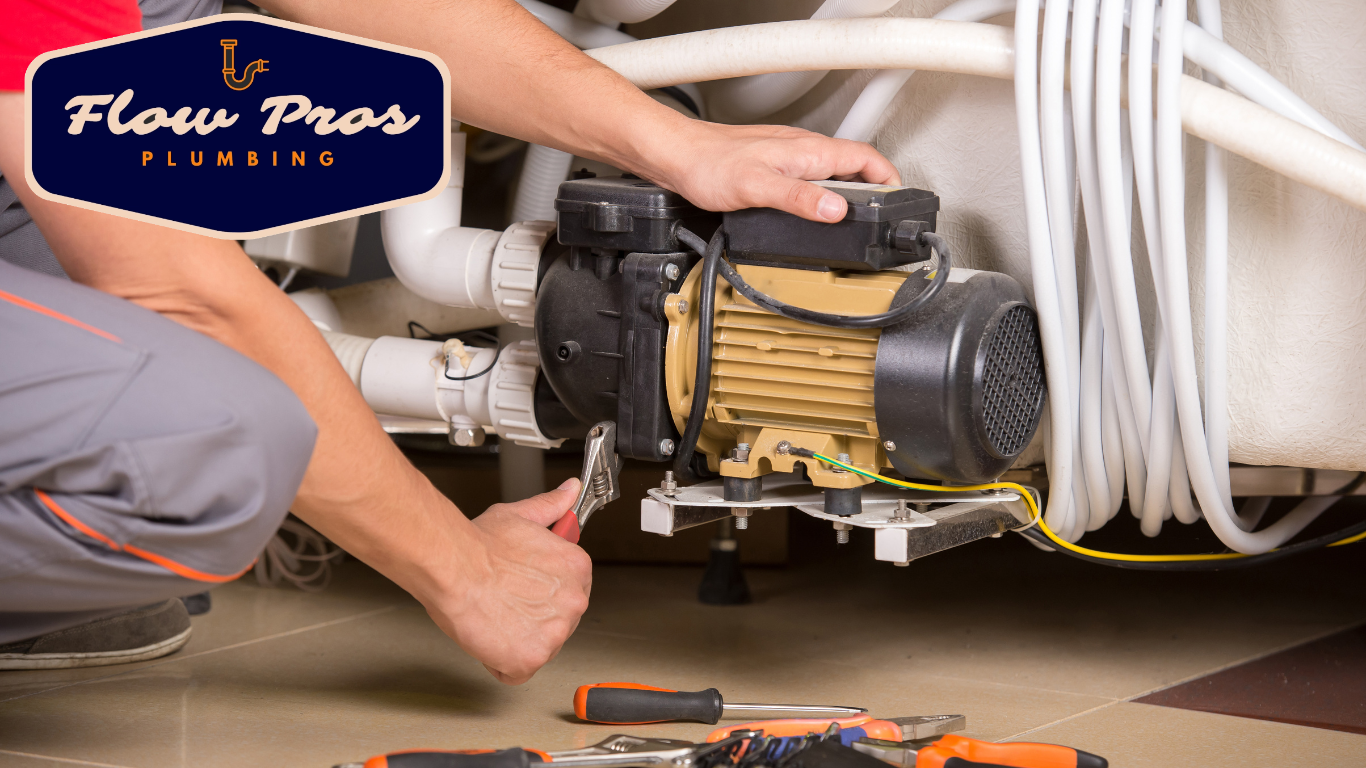

A Must-Read Guide: Plumbing Maintenance Tips for Homeowners
The plumbing maintenance tips for homeowners have always been an integral part of responsible home ownership, as a well-maintained plumbing system is crucial for a comfortable and functional living space.
Regular upkeep and preventive measures can help avoid costly repairs, minimize disruptions, and ensure the longevity and efficient operation of residential plumbing systems.
From inspecting for plumbing leaks and maintaining proper drainage to addressing small issues promptly, homeowners have the power to proactively care for their plumbing infrastructure.
In this blog post, we delve into the proven and tested plumbing maintenance tips for homeowners by going over valuable insights and practical advice, equipping homeowners with the knowledge to proactively maintain their plumbing, prevent common issues, and promote a smoothly functioning home.
So, let’s explore these indispensable tips and empower homeowners to take control of their plumbing maintenance.
Table Of Contents:
- The Importance of Regular Plumbing Maintenance
- Understanding Your Plumbing System’s Shut-off Valves
- Maintaining Water Pressure
- Keeping Drains Clear and Functional
- Proper Usage of Garbage Disposals
- Maintaining Septic Tanks or Sewer Lines
- When is the Best Time to Call Professionals?
- Time and Money Savings
- FAQs in Relation to Plumbing Maintenance Tips for Homeowners
- How do you maintain the plumbing in your home?
- What are the top 5 plumbing issues?
- How do you prevent plumbing problems?
- How often should plumbing be updated in a house?
- How does hard water affect plumbing systems, and what can homeowners do to prevent problems?
- How can homeowners prevent issues with their toilet tanks and ensure proper functioning?
- What is the role of a water softener in plumbing maintenance, and how does it benefit the system?
- How can homeowners maintain washing machines to prevent plumbing issues?
- Are there any specific plumbing maintenance tasks to consider when dealing with hard water?
- Implementing effective plumbing maintenance tips can prolong the life of your plumbing system, prevent costly repairs, and ensure a healthy and functional home environment for you and your family.
The Importance of Regular Plumbing Maintenance

Let’s talk about plumbing maintenance.
You know, that thing we often overlook until the pipe bursts or the toilet overflows? Well, it turns out regular plumbing maintenance is crucial to keep your home running smoothly and prevent small problems from turning into big ones. Did you know that household leaks can waste nearly 1 trillion gallons of water annually nationwide? Pretty staggering, right?
But here’s where licensed plumbers come in. They play an essential role in maintaining a well-functioning plumbing system, ensuring everything from your shower drains to outdoor spigots works as it should. Let’s not forget the importance of having a regular plumbing check-up. Considering the costs associated with a plumbing repair, it’s best to invest in regular maintenance and upkeep.
Would you rather pay for minor upkeep now or shell out thousands later when disaster strikes? In fact, according to HomeAdvisor, the average cost of a plumbing repair ranges between $175 and $450; that’s no chump change. So whether it’s checking shut-off valves or inspecting garden hoses every little bit helps protect your entire home.
Remember, prevention is always better than cure. Stay tuned because next up, we’re diving into how you can identify and address common causes of pesky plumbing problems.
Regular plumbing maintenance is crucial to prevent costly repairs and wasted water. Licensed plumbers play a vital role in keeping your system running smoothly. Don’t wait for disasters; take care of your home now. Flow Pros Plumbing is the best plumber company in the St. Petersburg, FL area. (727) 265-9639. #PlumbingMaintenanceTips #SaveWater Click to TweetAddressing Major Leaks
Now, let’s talk about those major leaks that can cause serious damage if left unattended. If you notice a sudden increase in your water bill or hear the sound of running water when no faucets are on, you may have a major leak.
Don’t panic, but do act quickly.
- Locate the primary valve to halt water flow and switch it off.
- Next, call a licensed plumber to assess and repair the leak.
- Remind yourself that large leaks can lead to harm to the structure of your house, so it’s best to leave the fixing up to a specialist.
Here’s a bonus tip for you: Consider installing a water leak detection system in your home. Installing a water leak detection system in your home can help you detect issues early, avoiding costly repairs and saving time.
Therefore, it is essential to take prompt action on plumbing problems regardless of their size in order to save water, money and avoid potential damage. Checking for leaks regularly and taking action right away can help conserve water, save you money, and protect your house from possible harm.
Remember, a stitch in time saves nine.
Save water, save money. Fixing household leaks can cut your water bill by 10%. Don’t ignore major leaks – turn off the main valve and call a licensed plumber. Consider a leak detection system for added peace of mind. Act fast to prevent damage and save cash. Ask Flow Pros Plumbing in St. Petersburg, Florida for advice and help (727) 265-9639. #PlumbingTips Click to TweetUnderstanding Your Plumbing System’s Shut-off Valves
If there’s one thing you need to know about your plumbing system, it’s the location of shut-off valves. They are described as crucial components in any home’s plumbing setup.
Finding and Operating These Lifesavers
Don’t worry – locating these lifesavers is simple. Your water meter is usually connected directly to the main shut-off valve outside your house.
Importance During A Plumbing Emergency
A sudden burst pipe or an unexpected leak can quickly turn into a full-blown flood if left unchecked. That sounds like a nightmare scenario for anyone. But that’s where knowing how to operate shut-off valves comes in handy – quite literally saving your entire home from becoming Waterworld 2.0.
Maintaining Regular Access To The Valves
To ensure easy access during emergencies, make sure no furniture obstructs these areas. Paying attention now could save you heaps of stress when dealing with potential future issues.
Know the location of your shut-off valves. They’re crucial in a plumbing emergency. Find them near your water meter and keep access clear for peace of mind. Contact Flow Pros Plumbing in St Petersburg, FL for help. (727) 265-9639. #PlumbingTips #HomeMaintenance Click to TweetMaintaining Water Pressure
Let’s talk about water pressure. Ever turned on your shower only to be met with a pitiful dribble? That, is a sign of low water pressure – not what you want when rinsing off that shampoo.
Understanding Your Home’s Water Supply System
Your home’s plumbing system relies heavily on proper water supply and good old gravity. A simple test can help identify if there are any issues affecting this balance.
- Screw a hose bib gauge onto an outdoor spigot or washing machine hot or cold outlet.
- Note the reading (it should ideally fall between 40-85 psi).
- If it falls below or exceeds these numbers, consider calling in licensed plumbers for further inspection.
CALL 727-265-9639 Schedule A Service
Keeping Drains Clear and Functional

Dealing with a clogged drain can really ruin your day. When dealing with a blocked drain, it can not only be inconvenient in terms of being unable to use sinks or showers, but it can also lead to serious damage throughout the entire plumbing system.
Using Drain Cleaners Safely
It may be tempting to grab that bottle of powerful chemical drain cleaner when faced with stubborn clogs, but there’s a safer approach. Preventing blockages in the first place by being mindful of what goes down our pipes is a better option.
The Do’s and Don’ts: What Shouldn’t Go Down Your Drains?
- Oils and fats solidify and cause nasty build-ups, so avoid pouring them down the drain.
- While paper towels may seem harmless, their high absorbency makes them prone to causing blockages. Stick with toilet paper instead.
- Your garbage disposal isn’t as invincible as you think – hard items like bones should never go into it.
Maintaining unclogged pipes is a crucial element of routine plumbing upkeep, which can help save you money and hassle in the future.
In our next section, we’ll take a closer look at the proper usage of one commonly misunderstood appliance – garbage disposal.
Keep your drains clear and functional to avoid plumbing disasters. Don’t pour oils, fats, or paper towels down the drain. Proper maintenance saves you time, money, and stress. #PlumbingTips #HomeMaintenanceProper Usage of Garbage Disposals
If there’s one thing that can really grind your gears, it’s a misused garbage disposal. You know what I’m talking about – those pesky food scraps that should never have been put down the drain in the first place.
A Consumer Reports guide provides some clear do’s and don’ts for garbage disposals.
- Fruit peels? Yes.
- Coffee grounds? Nope. They’re too fine and can clog up your system.
Routine maintenance is key to keeping this kitchen workhorse running smoothly.
- To keep things fresh, try grinding small pieces of lemon or orange peel from time to time.
Remember to use cold water when operating your disposal. This helps solidify any grease or oils so they get chopped up before reaching the trap.
Troubleshooting Common Issues with Garbage Disposals
If you notice an unusual noise coming from your unit or if it stops working altogether, remember – safety first. Always unplug the unit before attempting any sort of repair.
As always, consult with licensed plumbers for regular plumbing maintenance checks on all aspects of your home’s systems .
Properly using your garbage disposal is crucial to avoid clogs and breakdowns. Check out these do’s and don’ts from Consumer Reports for a smoothly running kitchen workhorse. #PlumbingTips #GarbageDisposalMaintenanceMaintaining Septic Tanks or Sewer Lines
Ever heard of the saying, “out of sight, out of mind?” Regular upkeep of your septic tanks and sewer lines is a must, or else you may have to contend with a major mess from a sewage backup in your house. Regular maintenance is crucial unless you fancy dealing with messy sewage backups in your entire home.
Cleaning Showerheads Regularly
Your showerhead might seem like a minor detail in the grand scheme of things. In reality, though? A clean showerhead can ensure good water flow and prevent reduced water pressure issues from ruining your morning routine.
The Importance Of A Maintenance Schedule
No one wants an unexpected plumbing issue turning into a full-blown emergency, right? This is why sticking to a regular maintenance schedule for all parts – including outdoor spigots and garden hoses – matters so much. Do you see how every piece plays its part in maintaining an efficient plumbing system? I bet it’s making sense now why even small leaks need immediate attention before they become major problems requiring costly repairs by licensed plumbers.
Luckily, we’re about to dive into when exactly you should call professionals for service.
Don’t neglect your septic tanks and sewer lines. Regular maintenance is key to avoiding messy backups. And remember, even small leaks can lead to costly repairs. #PlumbingMaintenanceTips CALL 727-265-9639 Schedule A ServiceWhen is the Best Time to Call Professionals?

Dealing with messy sewage backups or maintaining a septic tank is not for the faint of heart. It’s a dirty job that requires specialized knowledge and equipment.
Water Heater Installation and Repair
Installing or repairing a water heater is a job that should be left to the professionals. One misstep and you could be left with a drenched cellar or steaming hot water.
Gas Line Issues
Gas line issues are not something to mess around with. A professional plumber can ensure your safety and prevent potential disasters.
Renovations and Remodeling
Calling a professional plumber for your renovation or remodeling project is essential to guarantee safety and comply with the necessary codes. They can help with the design and ensure everything is up to code.
Water Quality Concerns
A professional plumber can diagnose the water quality issue, suggest solutions, and test for contaminants to help improve it. They have the knowledge and tools to test for contaminants and improve your water quality.
Time and Money Savings
While it may seem like a DIY project will save you money, it can often end up costing you more in the long run. A professional plumber can get the job done right the first time, saving you time and money on future repairs.
Instead of attempting a DIY plumbing job, entrust the task to experienced professionals who can ensure it’s done correctly. They have the expertise and experience to handle any problem that comes their way.
Save yourself the headache and let the pros take care of it.
Dealing with messy sewage backups or maintaining a septic tank is not for the faint of heart. Leave it to the professionals who have the knowledge and equipment to handle these dirty jobs. #PlumbingMaintenanceTipsFAQs in Relation to Plumbing Maintenance Tips for Homeowners
How do you maintain the plumbing in your home?
Regularly check for leaks, understand your shut-off valves’ locations, maintain proper water pressure, keep drains clear, and use garbage disposals correctly. Regular maintenance of septic tanks or sewer lines is also crucial.
What are the top 5 plumbing issues?
The most common plumbing issues include leaky faucets or toilets, clogged drains or toilets, low water pressure problems, and malfunctioning garbage disposals.
How do you prevent plumbing problems?
Preventive measures include regular checks for leaks and drain blockages.
Proper usage of garbage disposals can avoid clogs while maintaining a balanced water pressure prevents pipe damage.
How often should plumbing be updated in a house?
Plumbing systems generally last around 20 to 50 years, depending on material quality but routine inspections every two years help identify potential replacements earlier.
How does hard water affect plumbing systems, and what can homeowners do to prevent problems?
Hard water contains high mineral content that can lead to limescale buildup and clogged pipes.
Homeowners can prevent problems by installing water softeners or using descaling agents periodically.
How can homeowners prevent issues with their toilet tanks and ensure proper functioning?
To prevent problems with toilet tanks, homeowners should regularly check for leaks, adjust water levels, and avoid flushing non-flushable items to maintain proper functioning and prevent potential water damage.
What is the role of a water softener in plumbing maintenance, and how does it benefit the system?
A water softener helps remove minerals from the water, reducing the impact of hard water on plumbing fixtures and pipes. It prevents limescale buildup, prolongs the lifespan of appliances, and improves water flow and efficiency.
How can homeowners maintain washing machines to prevent plumbing issues?
Homeowners should clean washing machine filters regularly, avoid overloading machines, use appropriate detergents, and occasionally run empty cycles with vinegar to prevent clogs and maintain the performance of the washing machine.
Are there any specific plumbing maintenance tasks to consider when dealing with hard water?
When dealing with hard water, homeowners should regularly descale faucets, showerheads, and other fixtures using vinegar or descaling solutions to remove mineral buildup and maintain optimal water flow.
Implementing effective plumbing maintenance tips can prolong the life of your plumbing system, prevent costly repairs, and ensure a healthy and functional home environment for you and your family.
Plumbing maintenance tips for homeowners are not just suggestions; they’re essential tools in your homeowner toolkit. From identifying leaks to understanding shut-off valves, you’ve got the basics covered now. Maintaining water pressure? Check. Keeping drains clear and functional? Double check.
You know how to use garbage disposals properly and why maintaining septic tanks or sewer lines is crucially important. All these skills empower you as a homeowner, giving you control over minor issues before they escalate into costly repairs. But remember, there’s no shame in calling professionals when things get too complex or time-consuming. That’s where we come in!
If your plumbing system needs professional attention – whether it’s repair work on existing fixtures or replacement of outdated components – Flow Pros has got you covered! Explore our services, including expert water heater repair & replacement. We’re here to ensure that all your plumbing flows smoothly at all times.
Contact Flow Pros today if you’re ready to take your plumbing repairs to the next level!
CALL 727-265-9639 Schedule A Service